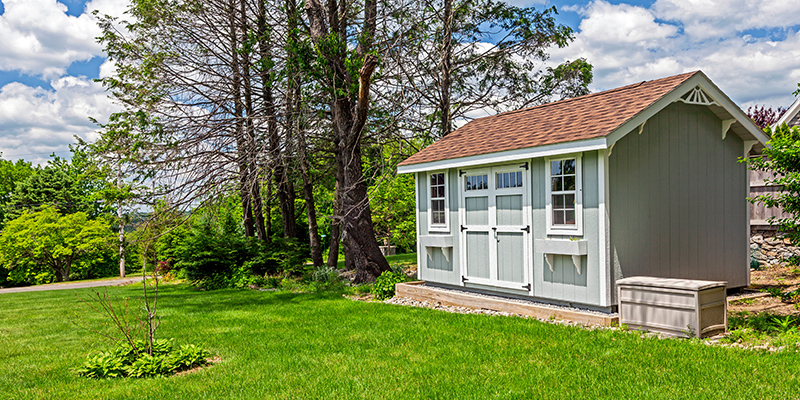Self Managed HOA Pros And Cons: Do You Need Help?

Homeowners associations vary greatly, with some requiring more attention than others. Although many find the idea of self-management appealing, it is not always the right call. In fact, when you become a self-managed HOA, you open your community up to certain risks.
Browse By Category
Sign up for Our Newsletter
Homeowners associations vary greatly, with some requiring more attention than others. Although many find the idea of self-management appealing, it is not always the right call. In fact, when you become a self-managed HOA, you open your community up to certain risks.
Understanding Self Managed HOA Pros And Cons
What is a self managed HOA? Simply put, a self managed condo association or homeowners association is one that purely relies on members of the association — the HOA board — to run the community. Self managed associations don’t have professional help from an HOA manager or management company.
Whether large or small, there are quite a few self-managed associations today. This may seem like a reasonable option, but many associations fail to realize just how much work is involved when handling management — or how much an HOA management company can improve their conditions.
To be successful as a self-managed homeowners association, board members must invest lots of time and have enough experience for each role. If you’re wondering whether or not your HOA should turn to condo self-management, there are a few important points to consider before making any decisions.
Here are the self-managed HOA pros and cons you need to know about:
The Pros
1. Cost Savings
Professional management services cost money. So, in that respect, a self managed homeowners association has the benefit of saving money and cutting down on its budget.
This, in turn, will lead to lower assessments. If your association is having money problems, then it is probably best to forgo professional services.
Keep in mind, though, that not all professional management companies are the same. You may have encountered some that charge sky-high prices, but there are others that offer quality services at a more affordable rate. Plus, with the advent of remote management, self-management has largely become a thing of the past.
2. Autonomy (with Risks)
Another benefit of a self-managed HOA is that you have complete control over the association and the decisions. You can do things your way without worrying about an HOA manager assessing your decision-making process. Unfortunately, this also comes with a disadvantage.
When an HOA board is given full autonomy, there is a greater risk of misuse of power. Difficult board members might force their decisions and even intimidate others into agreeing with them. Without a neutral party involved, things can get messy fast. Additionally, there’s no transparency. And, when that happens, corruption is inevitable.
The Cons
1. Problems with the Law
If your association’s board is made up of lawyers, then you probably don’t have to worry about the law. Unfortunately, not all HOAs can be as lucky. Oftentimes, many self-managed communities don’t even know they’re breaking the law. And, because not all states have the same laws, it can be confusing to know what’s what.
For instance, in California, reserve studies are mandatory every three years, but that may not be the case in other states. As a board member, you must stay fully aware of the law and keep yourself in the loop at all times.
That takes both time and effort, which not a lot of board members can spare. When it comes to insurance, your HOA must have proper coverage. Otherwise, you’re open to potential lawsuits.
2. Sloppy Management
 One of the pitfalls of self managing an HOA is poor management. Being a board member is a full-time (and thankless) job — and it doesn’t even come with pay. Most HOA boards consist of volunteers from the community.
One of the pitfalls of self managing an HOA is poor management. Being a board member is a full-time (and thankless) job — and it doesn’t even come with pay. Most HOA boards consist of volunteers from the community.
These volunteers usually have other priorities, like their careers and families.
Because of this, they might not have all the time in the world to devote to HOA management. Moreover, running a community demands expertise, and not everyone has the skills for it. All of this can lead to inefficient operations. In the end, both the association and its members will suffer.
3. Apathy
Another one of the pitfalls of self-managing an HOA is apathy. A lack of time or knowledge is one thing, but a lack of interest is dangerous. When board members are indifferent, they can open the HOA up to pitfalls.
For instance, not taking budget preparation seriously can lead to a shortage of funds. Barring special assessments, the board may be forced to cut corners. Over time, this can result in diminished curb appeal and lower property values — all because they simply don’t care.
4. Zero Point of Contact
A homeowners association exists to serve its members and protect property values. Naturally, homeowners are going to have a lot of opinions and complaints. And who else are they going to call in the middle of the night? Without an HOA manager, your board members are going to be fielding calls left and right. When you’re a self-managed HOA, constant communication comes with the territory.
What to Consider Before Turning to HOA Self Management
Before you even think about becoming a self-managed HOA, there are some things you must take into account.
When you hire a professional to handle your association, you gain access to a plethora of resources. However, if you do it yourself, you must consider the following:
1. HOA Experience
There are many different roles that have to come together when operating a homeowners association. For example, the association treasurer has to fully understand HOA financial reports and the collections process. And the landscape committee must have enough experience to properly supervise a gardener or landscape contractor.
2. Association Size
 Although it can vary depending on each association’s circumstances, self-management is generally more reasonable for HOAs with less than 10 units and little to no recreational space and common areas. The more places and offerings there are to manage, the more likely it gets overwhelming for the board.
Although it can vary depending on each association’s circumstances, self-management is generally more reasonable for HOAs with less than 10 units and little to no recreational space and common areas. The more places and offerings there are to manage, the more likely it gets overwhelming for the board.
3. Management Costs
The main reason HOAs lean towards self-management is because of the cost associated with hiring an HOA management company. However, it’s important for boards using this reasoning to closely examine their decision.
Although self-management may be able to save a few dollars for each owner every month, a lack of professional management could also decrease the value of your property by much, much more.
4. Legal Considerations
The board of a self-managed association should remember that they have a duty to manage risk when it comes to the community’s members as well as the general public. That means board members can be held liable for the decisions they make.
Although the HOA’s governing documents can protect the board from personal liability in some way, members can still take legal action against them for mismanagement.
Tips on How to Self-Manage Your HOA Community
Can an HOA be self managed? Certainly so, but it’s not for everyone. Although self-management remains an option for both large and small communities, it’s generally easier to forgo professional help when you have a modest number of units.
It’s not enough to simply know the self managed HOA pros and cons. If you decide that self-management is for you, you must learn how to manage a small condo association or HOA using the tips below:
1. Elect Capable Leaders
A self-managed association is only as good as the board members that run it. That’s why it’s important to elect board members who are capable of fulfilling their duties. They should be responsible people who know how to manage their time well. Better yet, if there are members in your community that specialize in law, financial management, and business, encourage them to run for a position on the board.
2. Follow Governing Documents
How do you manage an HOA? Your governing documents contain everything you need to know about running your community. It includes all processes and procedures as well as covenants and restrictions. It should also outline the scope of your authority as an HOA or condo association board. When in doubt, it’s always best to refer to your governing documents.
3. Keep Records of Everything
 Proper documentation is a key factor of successful self-management, especially when it comes to your HOA’s finances.
Proper documentation is a key factor of successful self-management, especially when it comes to your HOA’s finances.
Just like any organization, your HOA earns income and incurs expenses. To keep track of your cash flow, you should make sure to record all financial transactions.
Documentation also extends to other aspects of HOA management. Many communities have standard procedures for applications or requests which include the use of forms.
Always keep a record of these forms so you can refer to them in case of disputes. While you can’t keep physical copies forever, digitally scanning them easily gets rid of that problem.
4. Outsource Tougher Tasks
Although you might not need a full-service management company, you may benefit from companies that offer specific services. This includes financial management companies and law firms.
If you don’t have board members who specialize in these areas, it’s best to defer to professional advice. This will allow your association to run smoothly without needing to pay high HOA management fees.
5. Use a Self-Managed HOA Software
A self managed HOA software or condo software can help you in many ways. It can streamline several processes that would otherwise take days to complete manually.
For instance, if your HOA sends out monthly newsletters, a self-managed condo association software can help you design the layout and digitally send out copies in a matter of hours. It can also send out updates via email or text and even be linked to your HOA website.
But, improved communication isn’t the only way software can benefit you. Another area where a self managed condo association software can assist you is financial management.
Most of today’s HOA software has built-in accounting capabilities, allowing you to input your transactions and generate financial statements in just a few clicks.
Moreover, condo management software can help you with vendor management, online dues payments, service requests tracking and approval, and many more.
Consider Your Options Carefully
When considering self-management, board members must keep all aspects in mind, both positive and negative. Remember these self managed HOA pros and cons.
If the circumstances are right and owners are prepared with enough knowledge, experience, and concern for the wellbeing of the community, self-management can be an option.
Otherwise, finding a good property management company can help in keeping the HOA on track to success.
RELATED ARTICLES:
- Self Management vs Professional HOA Management
- 12 Qualities And Skills You Need In A Great HOA Manager
- 9 Steps On How To Change HOA Management Company
Trending Now
Related Article
Sign up for Our Monthly Newsletter
Sign up below for monthly updates on all HOA Resource

















